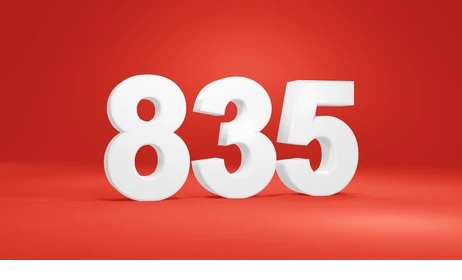What is an 835 credit score and how is it calculated?
An 835
credit score is considered an excellent credit score
on a scale from 300 to 850. It indicates to lenders that the borrower is
extremely creditworthy and has a low risk of defaulting on loans or credit
payments.
The credit score is
calculated using various factors such as payment history, amounts owed, length
of credit history, types of credit in use, and new credit inquiries. Payment history
makes up the largest percentage of the credit score, followed by the amount
owed.
Maintaining a good credit
score requires paying bills on time, keeping credit balances low, and
maintaining a diverse mix of credit types. Achieving an 835 credit score is a
great accomplishment and should be maintained with responsible credit practices
to continue being financially healthy.
The importance of a good credit score
Maintaining a good credit
score is crucial for numerous reasons. Firstly, it is a major factor in
determining whether or not you qualify for credit cards, loans, and mortgages.
A high credit score denotes a low level of risk,
making you an attractive candidate for lenders who are likely to offer you
credit at a lower interest rate. A low credit score, on the other hand, may
lead to difficulties in obtaining credit, or you may only be approved for loans
with high-interest rates, which can end up costing you a lot of money over
time.
Secondly, a good credit score can
positively impact your ability to secure a rental property, as landlords and
property management companies frequently check potential tenants' credit
reports to assess their reliability and financial stability. Additionally, some
employers review credit scores as part of their hiring process to gauge an
individual's responsibility and attention to financial obligations.
Finally, a good credit score can also
lead to better insurance rates as insurance providers may use credit score data
to help determine your likelihood of filing a claim, and how much to charge you
for coverage.
good credit score can have a
significant impact on your financial health and your day-to-day life. Keeping
your credit score in good standing is not only important for accessing credit
but for securing rental housing, obtaining employment, and potentially saving
money on insurance rates.
The benefits of having an excellent credit score
There are numerous
benefits to having an excellent credit score. Firstly, having a high credit
score allows individuals to obtain loans and credit cards with lower interest
rates and better terms. This means that you will pay less over the life of the
loan, and you may even be eligible for higher loan amounts.
Secondly, an excellent
credit score can help secure better rental and home mortgage deals, as well as
insurance policies. Thirdly, an excellent credit score can result in a lower
security deposit when renting a property and may even make it easier for you to
rent property altogether. Finally, an excellent credit score can lead to better
job opportunities, as employers often use a person's credit score as a factor
during the hiring process. Overall, having an excellent credit score can
greatly improve a person's financial well-being and opportunities for the
future.
How to achieve and maintain an 835 credit
score
Achieving and maintaining
an 835 credit score takes discipline, patience, and a solid understanding of
how credit works. Here are some steps you can take to get there:
1. Pay your bills on
time: Late payments are the biggest factor in lowering your
credit score. Set up automatic payments or reminders to ensure you never miss a
payment.
2. Keep your credit
utilization low: Your credit
utilization ratio is the amount of credit you’re using
compared to your credit limit. Aim to keep it under 30% to prevent hurting your
score.
3. Monitor your credit
report: Regularly check your credit report for errors and
unauthorized accounts or inquiries that may be hurting your score. Dispute any
errors or inaccuracies with the credit bureau.
4. Have a diverse mix of
credit accounts: Mix up the types of credit accounts you
have, such as credit cards, mortgages, car loans, and student loans. This shows
lenders that you can handle different types of credit responsibly.
5. Avoid excessive credit
inquiries: Each time you apply for credit, it shows up on your
credit report as an inquiry. Too many inquiries can lower your score, so only
apply for credit when necessary.
By following these steps
consistently over time, you can achieve and maintain an excellent credit score
of 835.
Common misconceptions about credit scores
There are a number of
misconceptions people have about credit scores. The first one is that checking
your own credit score will hurt your rating. This is not true - when you check
your own score, it's considered a "soft inquiry" and has no effect on
your rating.
Another common
misconception is that income level affects your credit score. In fact, income
isn't actually considered when calculating credit scores. Instead, factors like
payment history, credit utilization, and length of credit history are the
primary factors that determine your score.
Finally, some people
believe that closing credit accounts will improve their score. However, closing
accounts can actually have a negative impact on your rating by increasing your
overall credit utilization and shortening your average credit history.
Overall, it's important
to understand how credit scores are calculated and to avoid falling for common
myths and misconceptions. With the right knowledge, you can take steps to
improve your credit score and achieve greater financial stability.
Call (888) 803 -7889 for free credit repair consultation now!

Comments
Post a Comment